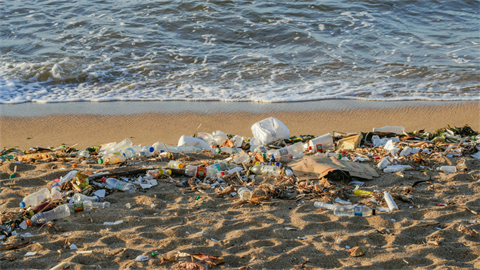How our City keeps trash out of waterways
Published on September 22, 2025

The City of Menlo Park’s streets are connected to waterways through storm drains. Now that the rainy season is upon us, rain will flow into the storm drains and collect any pollutants found on surfaces, such as roofs, driveways, sidewalks and streets. Unlike wastewater, stormwater is not treated before it enters waterways. Over time, pollutants in these waterways concentrate, affecting water quality and impacting our beaches and aquatic life. The state of California addresses these water quality issues through the Municipal Regional Stormwater NPDES Permit (MRP). The MRP is a comprehensive permit that regulates activities related to construction sites, industrial and commercial sites, illegal discharges and illicit connections, new development and municipal operations. Like other cities in the San Francisco Bay Area, Menlo Park is required to comply with the MRP. The information below describes how Menlo Park takes steps to ensure compliance with the MRP and protection of our natural resources:
Construction
Menlo Park requires construction sites to prevent pollution by containing spills, mitigating erosion and safely storing materials to keep the storm drains clear. Larger or high priority sites that plan to construct during the wet season are given a special designation. This designation is called a “C.6. Construction Site.” The wet season occurs from September to April each year. Projects with this special designation are subject to monthly inspections during the wet season to ensure that the contractors are complying with pollution prevention methods, otherwise known as best management practices (BMPs). While C.6. construction sites are subject to inspection during the wet season, all construction sites are required to follow BMPs throughout the year.
Industrial and Commercial Sites
Food handling facilities such as restaurants, institutional cafeterias, grocery stores, bakeries and delis can contribute to stormwater pollution, mainly through improper cleanup practices that allow food particles, oil, grease and cleaning products to flow to a street, gutter or storm drain. Because of this risk, the MRP requires Menlo Park to develop a business inspection plan for commercial and industrial sites. During facility visits, contractors ensure that businesses follow best practices for food service facilities and other commercial businesses. The local sanitary sewer treatment authority may also have restrictions on discharge into sanitary drains. West Bay Sanitary District serves most Menlo Park businesses.
Illicit Discharges
An illicit discharge occurs when prohibited liquids or trash enter the storm drain. Help keep our storm drains clean and fill out the illicit discharge form if you witness potential illicit discharge activity.